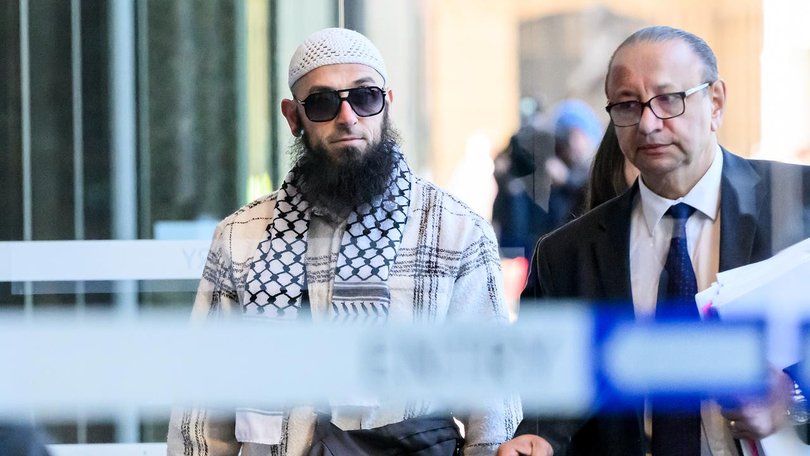Muslim preacher Wissam Haddad who called Jews ‘rats’ was protesting Gaza war: lawyer
A lawsuit against Wissam Haddad could place limits on fiery sermons given by Muslim leaders protesting the war in the Gaza Strip.

An Australian Muslim preacher who referred to Jews as a treacherous and vile people who use their power over the media and finance to oppress other people should not be sanctioned under the racial discrimination law because the Jews who complained were not really offended, the preacher’s lawyer told a court on Tuesday.
Wissam Haddad, a founder of an Islamic studies centre in the Sydney suburb of Bankstown, is being sued under a law that prohibits speech that offends, insults, humiliates or intimidates people on the basis of their race.
Filed by two Jewish leaders, the case could place limits on fiery sermons given by Muslim leaders protesting the war in the Gaza Strip.
Sign up to The Nightly's newsletters.
Get the first look at the digital newspaper, curated daily stories and breaking headlines delivered to your inbox.
By continuing you agree to our Terms and Privacy Policy.The civil trial began on Tuesday in the Federal Court, which was played extracts of four speeches by Mr Haddad in which he allegedly argued that Jews have set characteristics that inevitably lead them into conflict with Muslims.
“What are they doing?” Mr Haddad said in one of the recordings. “Hiding like the rats that they are.
“The majority of banks are owned by the Jews. Peace is bad for the Jews. There goes our media, our Hollywood blockbuster films.”

‘Prudish sensitivity’
Mr Haddad’s lawyer said the comments had been selectively edited, and were criticisms of Israel intended for a small audience of Muslims upset by the war.
Mr Haddad sat in the front row of the court wearing a white skull cap and a keffiyeh scarf. He is due to give evidence on Wednesday.
The men suing Mr Haddad, two top officials from the Executive Council of Australian Jewry, Peter Wertheim and Robert Goot, sought out the speeches after reading about them in a newspaper, barrister Andrew Boe said.
The speeches were investigated by the NSW and Federal police forces, which decided not to file charges, and the people who complained about them had deliberately gone out to be offended, Mr Boe said.
“It would be analogous to a person of a prudish sensitivity seeking out pornography and then complaining about it,” he told judge Angus Stewart. “There is room (in the law) for the confronting, the challenging, even the shocking.”
Asked if he expected to be exposed to challenging ideas when faced with a “robust discussion” about the Middle East conflict, Mr Wertheim said: “Yes, as long as they don’t cross the boundary into vilification.”

Inflammatory comments
His lawyer told the court that Mr Haddad’s organisation had published his speeches on the internet, and made further inflammatory comments after they received media coverage.
“And again those doing the digging is no other than the Zionist-backed media agencies under Rupert Murdoch and News Corp,” Mr Haddad said in November, 2023.
“This is what happens when you learn the dirty games of your oppressors. And now use it on the ones you want to oppress. The nazis did the same and the exact thing to the Jews before the Jewish Genocide.
“I guess the media is preparing the same grounds once again but this time for a Muslim genocide in Gaza.”
The case, which is scheduled to take four days, is being fought under Section 18C of the Racial Discrimination Act. The law does not apply to comments made in private, an exclusion sought by Mr Haddad’s lawyers, who argue the speeches at the Al Madina Dawah Centre in front of 400 people meet that test.
Conservatives pushed for the section to be removed under the Coalition government led by Tony Abbott in the mid 2010s on the basis it was an unfair imposition on speech.
The government gave up because of opposition in the Senate, which was urged by Jewish and Muslim groups not to reduce protections for religious minorities.
Correction: An earlier version of this article referred to Wissam Haddad as Mr Haddid.

